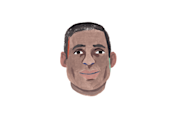Addiction affects over 21 million people in the U.S. That's approximately one in every 10 Americans over the age of 12.
That means many—if not most—of us have been affected by addiction in one way or another. Some grow up in households or environments where addiction is present and unavoidable. Some are lifelong friends with addicts. And, of course, some of us are addicts.
Addiction takes myriad forms, and within those forms are several stages. Upon hearing the word, most people immediately think of substance abuse (alcohol, drugs), but there are a number of other objects of addiction. An object of addiction can even be an ostensibly mundane element of our lives: food, technology, physical need, and financial gain, just to name a few.
How widespread is addiction in the U.S. today?
Addiction is up in the U.S. and COVID-19 is likely a factor. Before the pandemic hit, the number of deaths due to drug overdose was at a record high of 71,000 per year. The number of overdose deaths in 2020 shot up almost 30%.
Why the spike? As isolation increases due to the pandemic, in-person addiction recovery and support group meetups have had to stop. While some twelve-step programs met over telehealth, addiction experts say that in-person support is one of the most effective forms of addiction treatment as human connection is a huge factor in overcoming addiction.
On top of isolation, the anxiety and fear the pandemic instilled has many people turning to short-term palliatives to manage the uncertainty. For some of us, that’s binge-watching familiar TV shows. For others, it’s indulging in sweets a bit more. And for some, it’s the abuse of alcohol or drugs.
As Dr. Nikki Rubin, PysD, says, “Given the multitude and severity of the stressors that have been present due to the pandemic, those who struggle with substance use and dependence are going to be at a higher risk for returning to using as a means to cope.”
What is the definition of substance abuse?
Most of us are familiar with the concept of abuse: the improper use of something. But what is considered a “substance”?
According to a 2016 report from the Surgeon General a substance is qualified as a psychoactive compound with the potential to cause health and social problems. Substances can include alcohol, illicit drugs, prescription drugs, and over-the-counter drugs. Ranging from mild to severe, substance use disorders are considered a discrete illness resulting from changes to the brain due to use that significantly impairs health and function, and requires specialty treatment.
In a word: addiction.
The American Psychiatric Association defines addiction as “a brain disease that is manifested by compulsive substance use despite harmful consequence.” Addiction changes the brain's structure and how it functions, causing cravings and changes to the personality. Parts of the brain that control judgment, decision making, learning, memory, and behavior control are affected, and they are changed by the addiction itself.
It’s not that addicts just don’t care or lack morals or willpower, it’s that addiction is a disease of the brain. It affects our logic because it changes our logic.

What are the physical signs of addiction?
Addiction can change in a person’s physical appearance. The most common telltale physical changes are:
Rapid weight loss or gain
Changes in hygiene
Unusual smells on breath, body, or clothing (a result of changes in hygiene)
Dental issues
Skin changes
Problems sleeping or sleeping too much
What are the behavioral signs of addiction?
Addiction and substance abuse disorders will also drastically change a person's behavior and habits. Among the most common behavioral and emotional changes associated with problematic substance use are:
Unexplained change in personality or attitude
Sudden mood swings, increased irritability, or angry outbursts
Lethargy
Depression
Dramatic changes in daily habits and/or priorities
Changes in appetite or sleep patterns
Engaging in secretive behaviors
Periods of unusual hyperactivity, agitation, or giddiness
Lacking of motivation
Paranoia
How do I know it’s time to seek addiction treatment?
These are some signs that it could be time to seek addiction treatment:
Using in larger amounts or for longer than intended
Wanting to cut down or stop using, but not managing to
Spending a lot of time to get, use, or recover from use
Intense craving
Inability to manage commitments due to use
Continuing to use, even when it causes problems in relationships
Giving up important activities because of use
Continuing to use, even when it puts you in danger
Continuing to use, even when physical or psychological problems may be made worse by use
Increased tolerance to the substance
What is addiction treatment?
Addiction treatment can look different from case to case. Some people who struggle with addiction will need more medical help than others who may be able to succeed with talk therapy alone. As Dr. Rubin puts it, “Detox may be necessary under the care of a licensed physician who specializes in addiction treatment prior to beginning behavioral treatment.”
Medical detox is essentially supervised withdrawal: Doctors and specialists help a person gradually wean from the substance they have become dependent on, without causing a shock to their body.
Alongside medical detox is behavioral talk therapy, which can help those who have addictions identify when they are most likely to use and how to cope with these stressors. This work “helps individuals learn alternative adaptive coping strategies for emotional distress; as well as strategies to learn to tolerate and cope ahead for urges to use, identify triggers for use, and how to establish social support for both difficult times and in moments when an urge to use is high,” according to Dr. Rubin.
Whether we are aware of it or not, the effects of addiction can be felt and seen throughout our lives at all levels. “It’s important to note that someone may be struggling with using substances without meeting criteria for addiction,” says Rubin, “if someone is noticing an increased over-reliance on substances as a way to cope with difficulties (e.g. stress, anxiety, sadness), psychotherapy can be helpful.”

Addiction can be hard to face, even at the earliest stages, but understanding more about it is a first step toward helping yourself or others. If you think you or a loved one is suffering from addiction, you should speak with a therapist trained to address these sorts of issues. Not only will a specialist have tools for the addict in your life, but for those around them who are worried.
If you or a loved one needs urgent help, call the SAMHSA helpline at 1-800-662-HELP (4357) for free and confidential information and treatment referral.
American Psychiatric Association (APA). (2013). Diagnostic and statistical manual of mental disorders: DSM-5 (5th ed.). American Psychiatric Association.
Mayo Clinic. (2017). Drug addiction (substance use disorder) - Symptoms and causes. Mayo Clinic. Retrieved from https://www.mayoclinic.org/diseases-conditions/drug-addiction/symptoms-causes/syc-20365112
National Institute on Drug Abuse (NIDA). (2020). Principles of adolescent substance use disorder treatment: A research-based guide. Retrieved from https://www.drugabuse.gov/publications/principles-adolescent-substance-use-disorder-treatment-research-based-guide/principles-adolescent-substance-use-disorder-treatment
"abuse, n.". OED Online. June 2021. Oxford University Press. https://www.oed.com/view/Entry/821?rskey=WJYag9&result=1&isAdvanced=false
National Institute on Drug Abuse (NIDA). (2020). Treatment and recovery. National Institute on Drug Abuse. Retrieved from https://www.drugabuse.gov/publications/drugs-brains-behavior-science-addiction/treatment-recovery
Psychiatry.org. (2017). What is addiction? Retrieved from https://www.psychiatry.org/patients-families/addiction/what-is-addiction
Stobbe, M. (2020, October 20). U.S. overdose deaths appear to rise amid coronavirus pandemic. AP News. Retrieved from https://apnews.com/article/virus-outbreak-technology-pandemics-kentucky-22e4c7213a3f5a857cd50b8489325d9a
Substance Abuse and Mental Health Services Administration (SAMHSA). (2019). Quick statistics results. Rockville, MD: Center for Behavioral Health Statistics and Quality (CBHSQ). Retrieved from https://www.samhsa.gov/data/
Substance Abuse and Mental Health Services Administration (SAMHSA).(2019). Resources for families coping with mental and substance use disorders. Rockville, MD: Substance Abuse and Mental Health Services Administration. Retrieved from https://www.samhsa.gov/families
U.S. Department of Health and Human Services (HHS), Office of the Surgeon General. (2016). Facing addiction in America: The surgeon general’s report on alcohol, drugs, and health. Washington, DC: HHS. Retrieved from https://addiction.surgeongeneral.gov/sites/default/files/surgeon-generals-report.pdf
U.S. Department of Health & Human Services. (2019, Mar. 22). Mental health and substance use disorders. MentalHealth.gov. Retrieved from https://www.mentalhealth.gov/what-to-look-for/mental-health-substance-use-disorders
Wallace, A. (2020). Executive Summary. Open GLAM. https://doi.org/10.21428/74d826b1.b1ae638e
American Addiction Centers Editorial Staff. (2021). Symptoms and Signs of Substance Abuse. Retrieved from: https://drugabuse.com/symptoms-signs-drug-abuse-effects/
Juergens, J. (2021). Is My Addiction Bad Enough?. Retrieved from: https://www.addictioncenter.com/rehab-questions/is-my-addiction-bad-enough/



